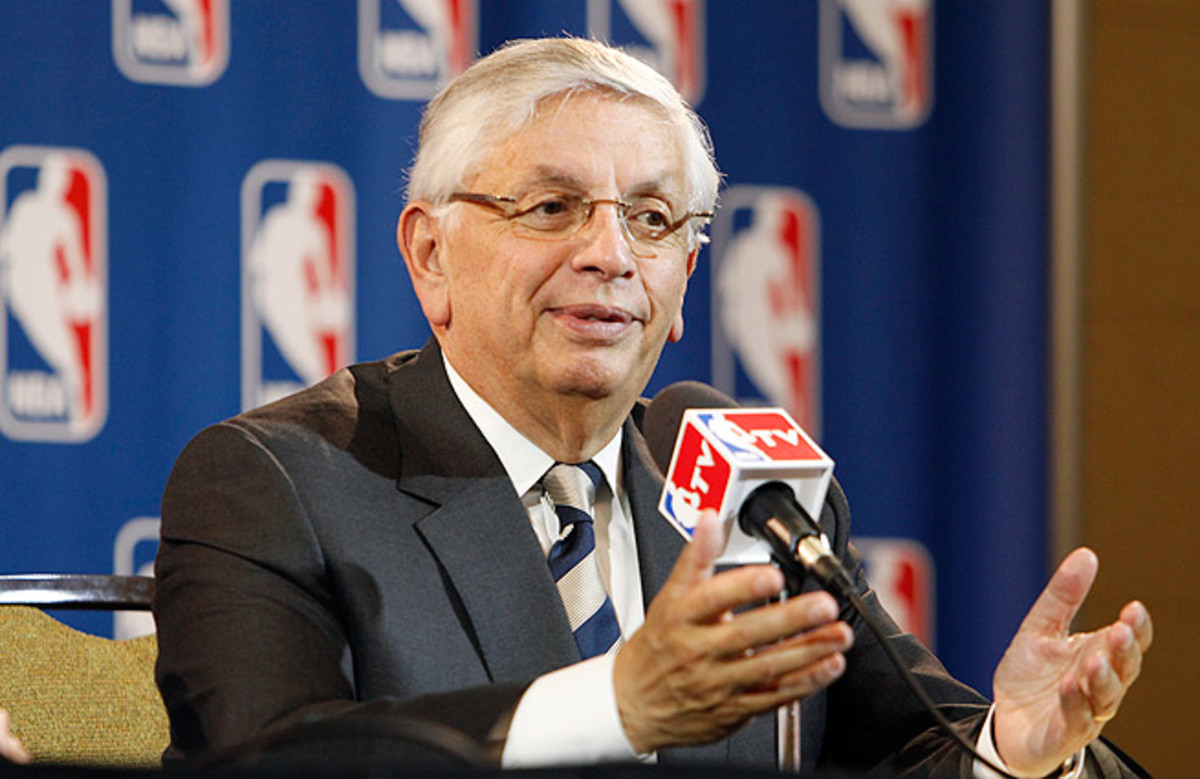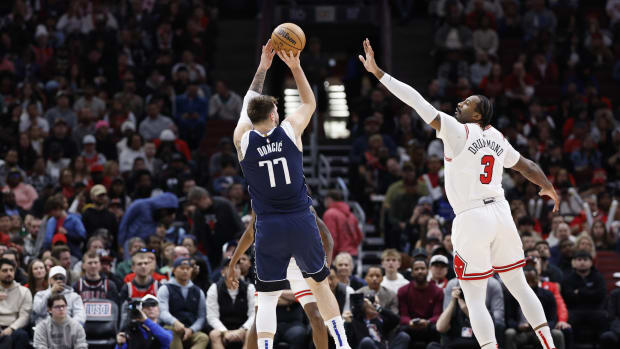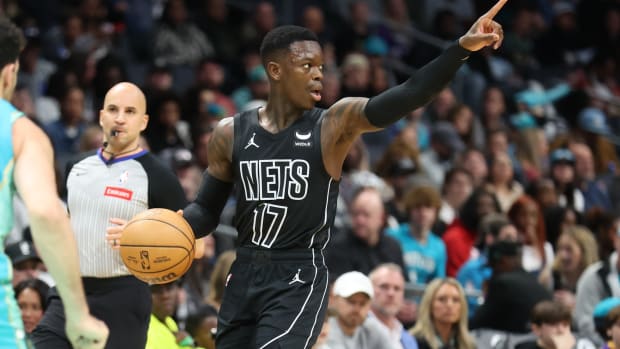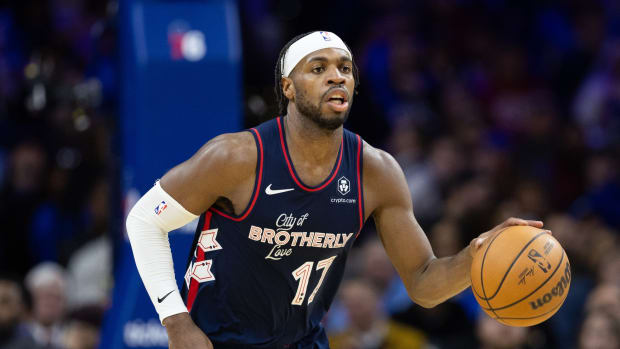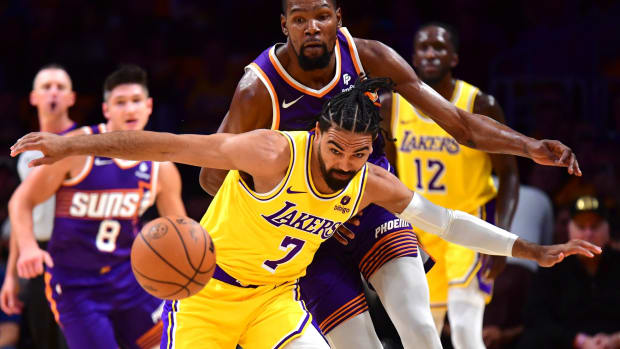NBA sets new precedent in voting to keep Kings in Sacramento
The Kings are staying in Sacramento, which is tremendous news for their fans and a strong move forward for the NBA on principle.
The principle is that a franchise should not be stripped from the arms of fans who have supported it and who want to continue supporting it. It is a good principle. It is the right way for the NBA to approach the relationship between a team and its customers.
What will be interesting to see is, in the years ahead, whether the NBA holds fast to this principle.
If this is the NBA's religion in these matters, then the league can consider itself to be born-again. It has come onto this principle relatively late in the game. George Shinn, the former owner of the Charlotte Hornets, has admitted that his NBA team probably would have stayed in North Carolina if he hadn't mismanaged his personal life and disappeared from public view. When local voters rejected a new arena deal in Charlotte, in no small part because they didn't like Shinn, he abruptly moved the team to New Orleans in 2001.
The NBA fans in Charlotte had nothing to do with the departure of their team. In time a new NBA arena would be built on behalf of the expansion Bobcats, again in part because Shinn had nothing to do with the new project.
GOLLIVER: Stern enrages Seattle media with OKC comments
Shinn brought the problems of the old Hornets entirely upon himself. And yet his fellow NBA owners and their commissioner weren't intervening to strong-arm Shinn to sell the team in hope of salvaging the league's investment in Charlotte, as they are doing now in Sacramento with the Maloofs.
When Clay Bennett, the new owner of the Sonics, made a half-hearted attempt to build an arena in Seattle, neither commissioner David Stern nor the NBA owners intervened to prevent the franchise from moving to Oklahoma City in 2008.
Earlier this year, when the Maloofs agreed to sell the team to the group that planned to move the Kings to Seattle, Sacramento mayor Kevin Johnson gathered an investment group and pushed forth plans to build an arena in downtown Sacramento. Johnson has offered the kind of public leadership that was lacking in both Charlotte and Seattle, the NBA says.
It's a strong point. But here is what the investors from Seattle have been telling the NBA owners: Johnson may not be able to make good on his proposals.
(Let me spell this out here: It is my own opinion that if Sacramento can support its team, then Sacramento should keep its team.)
The investors from Seattle have warned the NBA repeatedly that the planned downtown site in Sacramento has already been rejected by the Sacramento City Council in 2005 as "infeasible," that the project is going to be much more expensive than estimated by Johnson and that it is likely to be put up to a referendum in a region that is faced with enormous financial difficulties in the public sector.
The Seattle investors have questioned whether Johnson has been making proposals that are beyond his control -- proposals that cannot be kept. Their belief is so strong that they are willing to invest $125 million to become minority partners of the Maloofs. If the arena is built by 2016, as detailed in Sacramento's proposal to NBA owners, then the Seattle group would sell its stake and move on. But the Seattle investors believe it cannot be built as proposed, and not because of lack of will by Johnson or the new owners. So convinced are the Seattle investors that the arena project in Sacramento is too complicated and expensive, that they are willing to gamble the next several years and a huge amount of money on their point of view.
The response of the NBA owners, by way of their 22-8 vote Wednesday to prevent the Kings from moving, is that they are willing to let the drama of the planned new arena play itself out over the years ahead, because that's how much they value the NBA's relationship with Sacramento.
In the meantime, Stern sounded as if he was going to make the Maloofs an offer they couldn't refuse. "We will talk to the Maloofs and see in the next 24 to 48 hours if we can help facilitate an agreement to be signed between the Ranadive group and the Maloofs for the sale of the franchise in Sacramento," said Stern.
Having watched the Hornets and Sonics abandon their cities, Stern has shown a heightened resolve. He sent an expansion team to Charlotte, and he kept the Hornets in New Orleans at great cost to his own reputation. His work behind the scenes on behalf of Sacramento is a continuation of that trend.
If the arena can be built in Sacramento sooner than later, the right thing will have been done here. I have no idea how that project will play out. All I know is that the new arena makes Sacramento a viable market for the NBA, and so long as it is viable then the Kings should not leave. It is the right thing to do for the fans in Sacramento, it is good business to protect the league's investment in Sacramento, and it is the continuation of a principle that is worthwhile.
At the same time, it is going to be interesting to follow the construction plans over the years ahead in Sacramento -- will the Seattle investors' proposed $125 million wager turn out to be wrong?
It will also be interesting to see whether the NBA's newfound principle of protecting markets is upheld. Because these are complicated issues. There is a lot of money and influence at stake, and every situation has different circumstances. And, based on the variety of its responses throughout the new millennium, it remains hard to predict which principle the NBA will seek to uphold the next time one of these problems comes up.






























